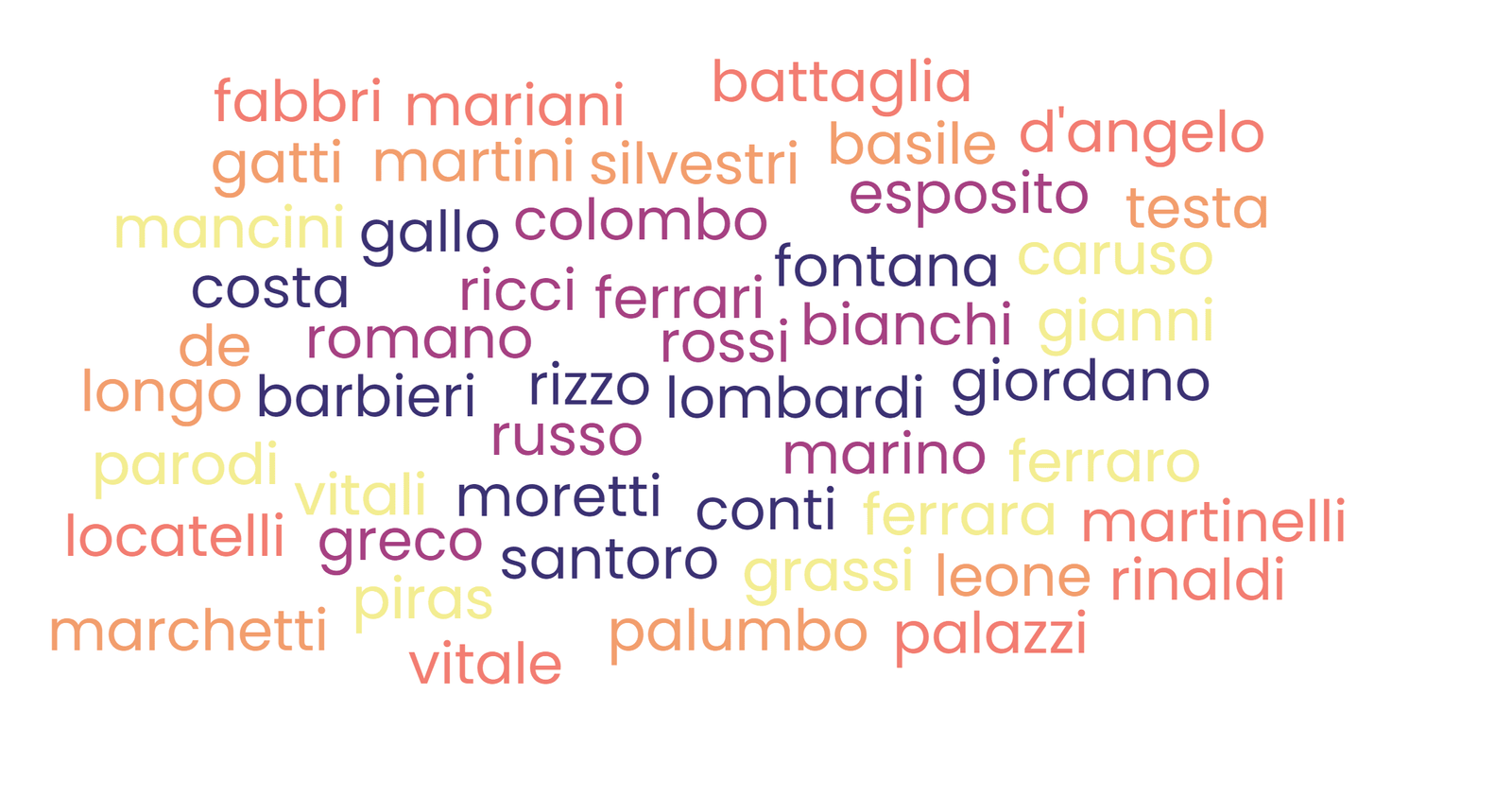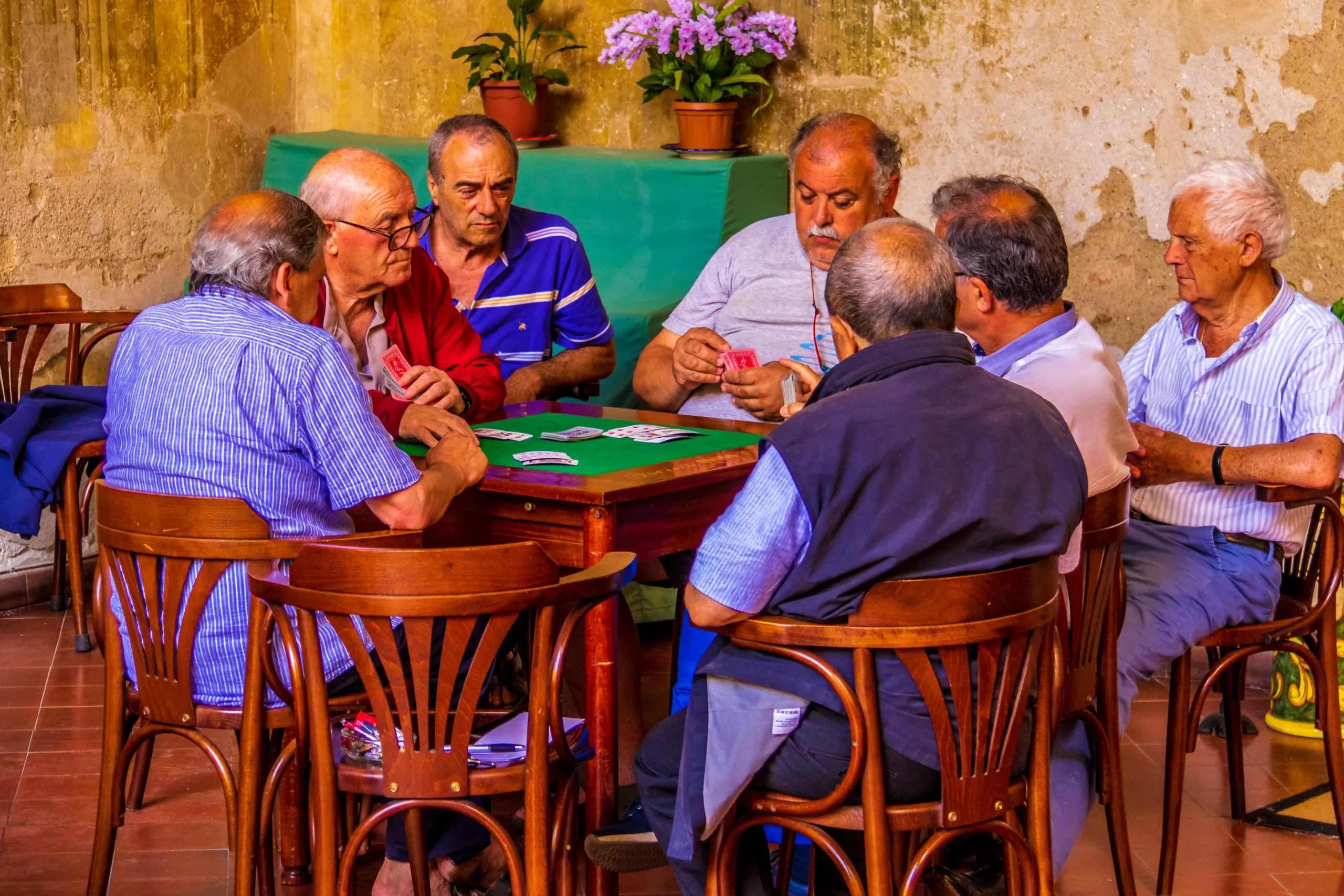With millions of people having Italian heritage, it’s no surprise that there are well over a million surnames associated with this culture. Moreover, Italy is a country rich in history and culture. Therefore, it is not surprising that the surnames of Italian citizens are both unique and diverse.
Italian Surnames History and Meaning
From Roman antiquity to modern times, Italians have created and used surnames to identify themselves and their families; as such, they are often passed down from generation to generation, and can thus tell us a lot about a person’s family history.
Furthermore, The most common surname in Italian is Rossi, which is derived from the Italian word for “red” and is most often found in northern and central Italy. Additionally, Russo is derived from the Latin word for “red-haired,” and is most common in southern Italy. Moreover, Other popular surnames are Colombo, meaning “dove”, and Esposito. Notably, this name, which originated centuries ago, is associated with the fact that many parents abandoned or “exposed” their newborns to the mercy of Mary.
Italian Surnames Regionality and Origins
In many cases, Italian surnames are regional and have a strong regional identity; for instance, surnames ending in “u” such as Careddu, Canu, and Cossu are often native to the island of Sardinia, while surnames ending in “n” such as Trevisan and Marcon are native to the region of Veneto. Moreover, some common Italian surnames can be found around Italy, typically stemming from occupations, such as Barbieri which is the Italian word for barbers, or from nicknames, such as Biondi which is derived from the Italian word for blonde.
Some surnames are connected to people of noble birth. For example, Barone, which means “baron”, or Conte, which means “count”.

Italian Surnames Categories
In general, Italian surnames can be divided into five categories:
- geographical names
- patronymics
- occupational names
- nicknames
- nicknames derived from personal characteristics
Geographical
Geographical surnames derive from a place of origin, for example:
- Pisano, which means “from Pisa.”
- Vicentino, which means “from Vicenza”
- Milanesi, which means “from Milan”
- Tedesco, which means “from Germany”
- Albanese, which means “from Albania”
Patronymic
Patronymic surnames derive from a father’s name. For example:
- De Vito, meaning “son of Vito”
- Giannini, meaning “son of John”
- Mattei, or “son of Matthew”
Occupational
Occupational surnames derive from a specific profession or trade, such as the surnames
- Forner, which means “baker” in Venetian
- Ortolano, which means “greengrocer”
- Ferrari, as in “blacksmith”
- Sarti, as in “taylors”
Nicknames
Nicknames are derived from personal characteristics. Examples are:
- Carbone, which means “coal”
- Gentile, which means “gentle”
- Mori, as in “dark”
- Altobelli, as in tall and beautiful.
Prefixes
In addition to the variety of surnames, there are also a variety of prefixes that can be added to a surname. Prefixes can be used to indicate a person’s profession, such as the prefix Dottore for a doctor, or social status, such as the prefix Contessa for a countess. This is often seen in civil registration records.
Conclusion
Overall, Italian surnames provide a glimpse into the rich history of Italy and the many families who have lived there for centuries. As they are so closely intertwined with each individual’s family history, it’s no wonder that so many people take great pride in their Italian surnames.
If you need help researching your Italian family name, please use this contact form for a free consultation.
